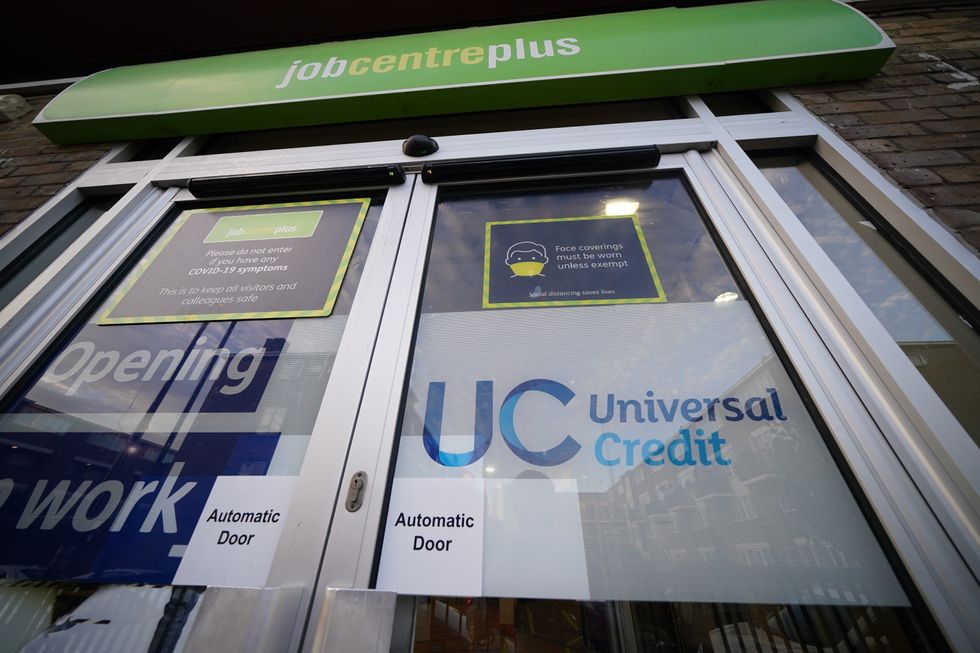DWP warning as 90,000 claimants could lose out on benefits if they fail to act next month

DWP warning as 90,000 claimants could lose out on benefits
| GETTY
The Department for Work and Pensions (DWP) is migrating people on legacy benefits to the Universal Credit system
Don't Miss
Most Read
Latest
Thousands of benefit claimants are warned their benefit payments could stop if they fail to act.
Universal Credit has slowly been introduced across the UK to replace six older types of benefits and tax credits - also known as legacy benefits.
However, the process isn’t automatic, so anyone affected needs to actively apply for Universal Credit at the right time or their payments could suddenly stop.
Benefit claimants who are yet to make the switch to Universal Credit are being urged by the Government to move or risk losing access to their benefits.
The process of switching claimants over is picking up pace, with the Government now in the 'managed-migration' phase. This involves sending out ‘Migration Notice’ letters to everyone still claiming legacy benefits, including tax credits.
If someone receives one of these letters, then they must apply for Universal Credit by the date shown on the letter or they will lose their financial support.
 New rules to Universal Credit could impact claimants | PA
New rules to Universal Credit could impact claimants | PAAccording to the DWP's figures, 184,120 individuals have already lost their benefits after failing to act on migration notices received between July 2022 and March 2024.
Those still on legacy benefits are urged to remain vigilant as their letters will be sent out next month.
Which benefits are being migrated?
Universal Credit has slowly been introduced across the UK to replace six older types of benefits and tax credits including:
- Child tax credit
- Working tax credit
- Housing benefit
- Income Support
- Income-based Jobseeker’s Allowance (JSA)
- Income-related Employment and Support Allowance (ESA
Other benefits, such as Personal Independence Payment (PIP), will stay the same.
The Government plans to move all households claiming these older benefits across to Universal Credit by the end of 2024.
This July, around 90,000 letters will be sent out to people who currently receive the Income-related Employment Support Allowance with Child Tax credits.
Letters will also be going to anyone of pension age who currently receives tax credits. These people might be moved to either Universal Credit or Pension Credit, depending on their individual circumstances.
From August around 20,000 people on Income-based Jobseekers Allowance will start getting letters. Then, from September, 800,000 households will begin to receive letters explaining how to move from ESA to Universal Credit.
Claimants will have three months after the letter arrives to apply for Universal Credit. If they miss it, their payments will stop.
The amount of Universal Credit someone would normally get depends on their circumstances, such as how much they earn, whether they have any savings, whether they have children or other dependents, are disabled or have a health condition, care for a disabled person or need help with housing payments.
In April 2022, the DWP estimated that 55 per cent of the remaining households on legacy benefits would have a higher entitlement on Universal Credit, and 35 per cent would have a lower entitlement.
Those who have a lower entitlement will be eligible for ‘transitional protection payments’ – a top-up that will make up the difference if their Universal Credit entitlement is less than their previous tax credits or benefits.
People can only get this additional amount if they have received a Migration Notice and claim by the deadline date on their letter.
The Government has been urged to better support benefit claimants transferring from older "legacy" benefits onto the Universal Credit (UC) system replacing them
A report published by the Public Accounts Committee (PAC) urged the DWP to help claimants make the switch while reiterating warnings over fraud and error rates and expressing scepticism on UC’s hoped-for economic benefits.
Dame Meg Hillier MP, chair of the committee, said: “If the transition from legacy benefits to UC fails even an apparently small proportion of people, it will lead to real world misery for thousands.
“The DWP must make sure that people are not cast into financial hardship due to a bureaucratic change, and that robust support is in place for those vulnerable claimants who need it most.”










